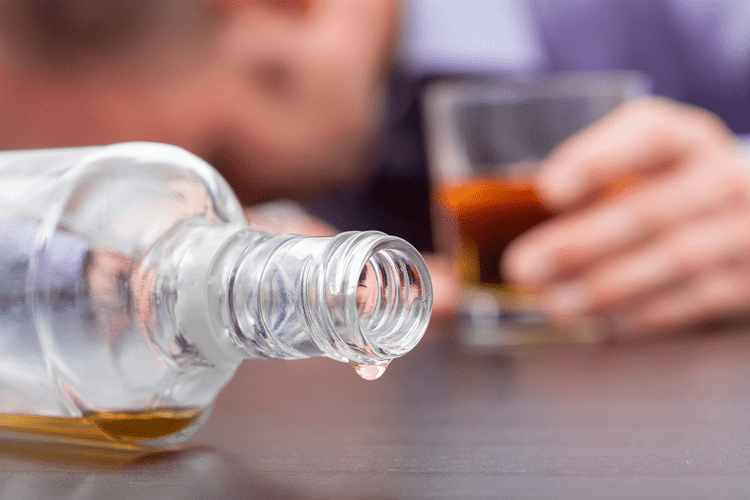Can Alcohol Make My Anxiety Worse?
Content
“Many people who suffer from anxiety disorders turn to alcohol as a way to self-medicate,” Clare Waismann, RAS, SUDCC, Founder and Director of Waismann Method® and Domus Retreat in California, tells WebMD Connect to Care. Research shows that people with alcoholism find it difficult to recover from traumatic events.
Scientific research reveals how habitual drinking amplifies symptoms of anxiety or vice versa. Outside of the medical community, the internet is flooded with information and forums discussing how quitting alcohol cured my anxiety. We decided to explore more on this topic and, exactly, what happens with anxiety after drinking alcohol. There is a great connection between alcohol abuse and a variety of mental health and behavioral disorders, other noncommunicable diseases, and injuries. In addition to its link to anxiety, the World Health Organization states that alcohol abuse is a contributing factor in more than 200 illness and injury situations. Beyond negative effects on health, alcohol abuse has a negative social and economic impact on both the person and society as a whole.
The Reality of Alcohol & Anxiety Attacks
Having a drink might seem like a good way to ease anxiety, but you may be doing more harm than good. “When the alcohol wears off, that system comes back with a kind of vengeance — so there’s always some kind of rebound,” Dr. Koob explains.

So it makes sense that you enjoy a cocktail as soon as you get home every night now that your new boss seems intent on micromanaging your every move. Or that you find yourself pouring a couple glasses of wine after dinner during the trying toddler phase of parenting. Or that you open that third beer after a grueling week of exams. If alcohol and anxiety are as familiar to you as peanut butter and jelly, you’re not alone. If you wake up after a night of heavy drinking worrying about what you said, what you did, or what kind of messages you sent when drunk, this is perhaps a manifestation of hangxiety. The alcohol detoxification period can last for several hours, and can be legitimately considered a minor form of alcohol withdrawal.
How Alcohol Affects Anxiety Disorders
Your health provider has previously told you that if you don’t start treating your anxiety, you could experience serious adverse medical events. Your anxious feelings are preventing you from getting a proper night’s sleep. Writing out your feelings helps you to remove them from your head.
For many people, drinking alcohol is a quick, easy way to deal with feelings of anxiety. Often referred to as liquid courage, alcohol can help an individual feel as though they fit in when they’re in uncomfortable situations, alcohol and anxiety make it easy to be outgoing, and help eliminate worries temporarily. It numbs the senses enough to prevent someone from feeling natural fear, which makes it easy for them to go against their normal instincts.
Traditional ways of treating anxiety
TCAs also should be used with caution among people with co-occurring AUDs and be prescribed only after other treatments have been ruled out because these medications can have an enhanced adverse-effect profile in this population. Moreover, the impaired judgment and impulsivity among persons with co-occurring alcohol use problems may increase the risks of taking an overdose of the medications that can result in toxicity and, potentially, suicidality. Finally, TCAs may react with alcohol in the brain to cause respiratory depression (Bakker et al. 2002). Once comorbidity between anxiety disorders and AUDs has been established, the two disorders may influence and maintain each other in ways that are independent of the developmental pathway. In other words, the processes involved in the initiation and the maintenance of comorbidity may differ in meaningful ways. One hypothesis emerging from the comorbidity literature is that anxiety and AUDs become intertwined in a reciprocal, perpetuating cycle. This positive feedback loop often is characterized as a feed-forward or mutual-maintenance pattern.

This can result in bad judgment and lowered inhibitions, which can lead to increased drug or alcohol use. The same traits that affect brain chemistry linked to bipolar disorder may also affect the way the brain responds to alcohol, increasing the risk of addiction. Dr. Schacht recommends checking in with yourself aboutwhy you’re drinking. Is it because you’re genuinely enjoying time with your friends or family, or are you trying to relieve taxing feelings you’ve been dealing with?
Dangers of Self-Medicating Anxiety with Alcohol
People can usually manage all types of anxiety successfully by using a combination of lifestyle changes, medications, https://ecosoberhouse.com/ and therapy rather than alcohol. Overall, quitting alcohol can cure anxiety, especially if addressed early on.
How does alcohol affect your mental health? – CTV News
How does alcohol affect your mental health?.
Posted: Wed, 14 Dec 2022 08:00:00 GMT [source]
People have long used alcohol as a way to cope after a stressful day – whether the source of that stress is work, parenting woes or the anticipation of a big life change. A decanter and a couple glasses often are pulled out when giving or receiving bad news. And while some people may grab a tub of ice cream from the freezer after a breakup, many others reach for a bottle to use as a balm for their heartbreak.


